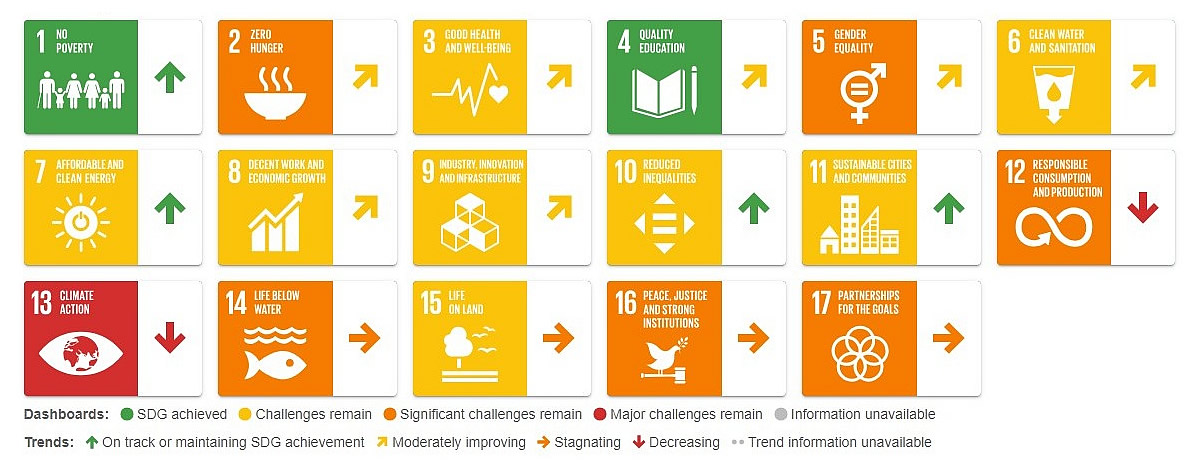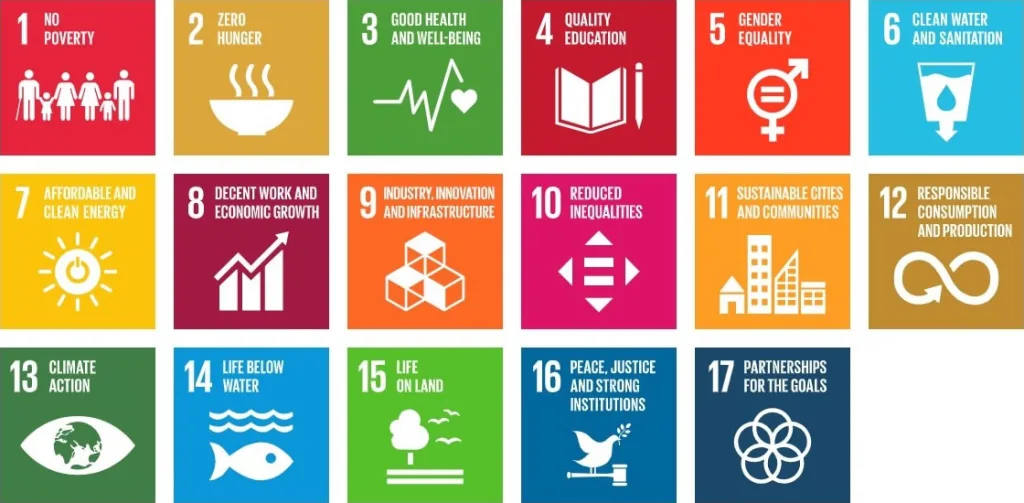SDGs Croatia - Sustainable Development Goals
Sustainable Development Report 2025

Croatia’s Journey with Sustainable Development Goals: Progress and Future
Croatia embraced the Sustainable Development Goals in 2015. The nation committed to transforming society by 2030. These 17 global goals address poverty, inequality, and environmental challenges. Croatia treats SDG implementation as a national priority.
Historical Context
From Millennium to Sustainable Development
Croatia initially focused on Millennium Development Goals. The government prepared its first National Report in 2004. This document laid the groundwork for future sustainability efforts. Additionally, Croatia submitted progress reports to the United Nations in 2006.

Adopting the 2030 Agenda
In 2015, Croatia joined 193 UN Member States in adopting the SDGs. The transition marked a shift toward comprehensive sustainability. Furthermore, the country aligned its policies with European Union frameworks. This dual commitment strengthened Croatia’s sustainability agenda.
Governance and Organization
National Council for Sustainable Development
The Croatian government established the National Council for Sustainable Development (NCSD) in January 2018. The Prime Minister chairs this high-level body. Moreover, the council includes Cabinet members responsible for Agenda 2030. The NCSD coordinates implementation across all government levels.
Ministry Leadership
Croatia designated the Ministry of Foreign and European Affairs as its national coordinator for SDG actions. This ministry leads strategic planning efforts. Additionally, it established a dedicated working group on SDGs. The ministry ensures international cooperation on sustainability issues.
Institutional Framework
The NCSD includes several key offices. These comprise the Office of the President and Government’s Office for Human Rights. Furthermore, it involves the Office for Civil Society and Gender Equality. The Bureau of Statistics provides essential data support.
Progress and Achievements
Environmental Initiatives
Croatia developed an Environment Action Plan 2016-2024. This plan aligns with environmental SDGs perfectly. Croatia also aims to implement measures to prevent water pollution (SDGs 6, 14) and to shut down landfill by 2024 by phasing in modern waste-treatment facilities (SDG 12).
Renewable Energy Expansion
With 31% of its primary energy consumption coming from renewable energy sources, Croatia shows strong progress in clean energy. The country will also invest EUR 4 to 6 billion in renewable energy (SDG 7) by 2030. This investment demonstrates serious commitment to sustainable energy.
Climate Action Goals
The country aims to reduce its greenhouse gas emissions by at least 65% until 2030 compared to 1990 levels, and to increase the production of electricity from renewable sources to more than 35% by 2030. These ambitious targets exceed EU requirements.
National Development Strategy
Croatia developed its first comprehensive 2030 National Development Strategy. The World Bank supported this strategic planning process. This strategy integrates SDGs into national development planning. It provides clear direction until 2030.
Key Organizations and Stakeholders
Government Bodies
Multiple ministries participate in SDG implementation. The Ministry of Foreign and European Affairs leads coordination efforts. Additionally, various government offices contribute specialized expertise. The Bureau of Statistics monitors progress through data collection.
International Partnerships
Croatia works closely with the United Nations system. The country participates in the High-Level Political Forum regularly. Furthermore, EU membership provides additional support frameworks. International cooperation strengthens implementation capacity.
Civil Society Engagement
Currently, NGOs have limited formal participation in the NCSD. However, civil society organizations actively promote sustainability awareness. They advocate for stronger public participation. Their involvement remains crucial for comprehensive progress.
Challenges and Areas for Improvement
Data and Monitoring
Croatia needs stronger statistical systems for SDG tracking. Data gaps limit effective monitoring capabilities. Additionally, regional disparities require better documentation. Improved measurement systems would enhance policy effectiveness.
Civil Society Participation
NGOs are not yet invited to take part in the dialog. This exclusion limits stakeholder engagement significantly. Greater civil society participation would strengthen implementation efforts. Democratic governance requires inclusive decision-making processes.
Regional Development
Rural and urban areas face different sustainability challenges. Regional development remains uneven across Croatia. Additionally, demographic changes affect local implementation capacity. Tailored approaches could address these disparities better.
Looking Forward
Croatia demonstrates strong commitment to sustainable development. The institutional framework provides solid foundations for progress. However, enhanced stakeholder participation remains essential for success.
Future priorities include strengthening data systems and monitoring capabilities. Moreover, expanding civil society engagement will improve democratic governance. Regional development strategies need more targeted approaches.
The renewable energy investments position Croatia as a regional leader. Climate action commitments exceed international requirements significantly. These achievements create momentum for continued progress.
Success depends on maintaining political commitment across government changes. Additionally, public awareness and participation must increase substantially. International cooperation will remain vital for achieving ambitious goals.
Croatia’s journey toward 2030 requires sustained effort from all stakeholders. The foundation exists for transformational change. Now implementation must accelerate to meet global deadlines.
SDSN / Cambridge University Press
Sustainable Development Report
The Sustainable Development Report (formerly the SDG Index & Dashboards) is a global assessment of countries’ progress towards achieving the Sustainable Development Goals. It is a complement to the official SDG indicators and the voluntary national reviews.
› Sustainable Development Report Croatia

